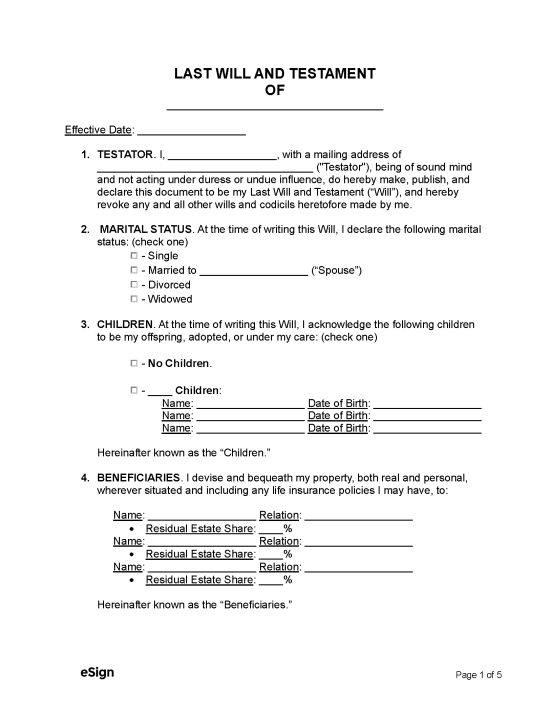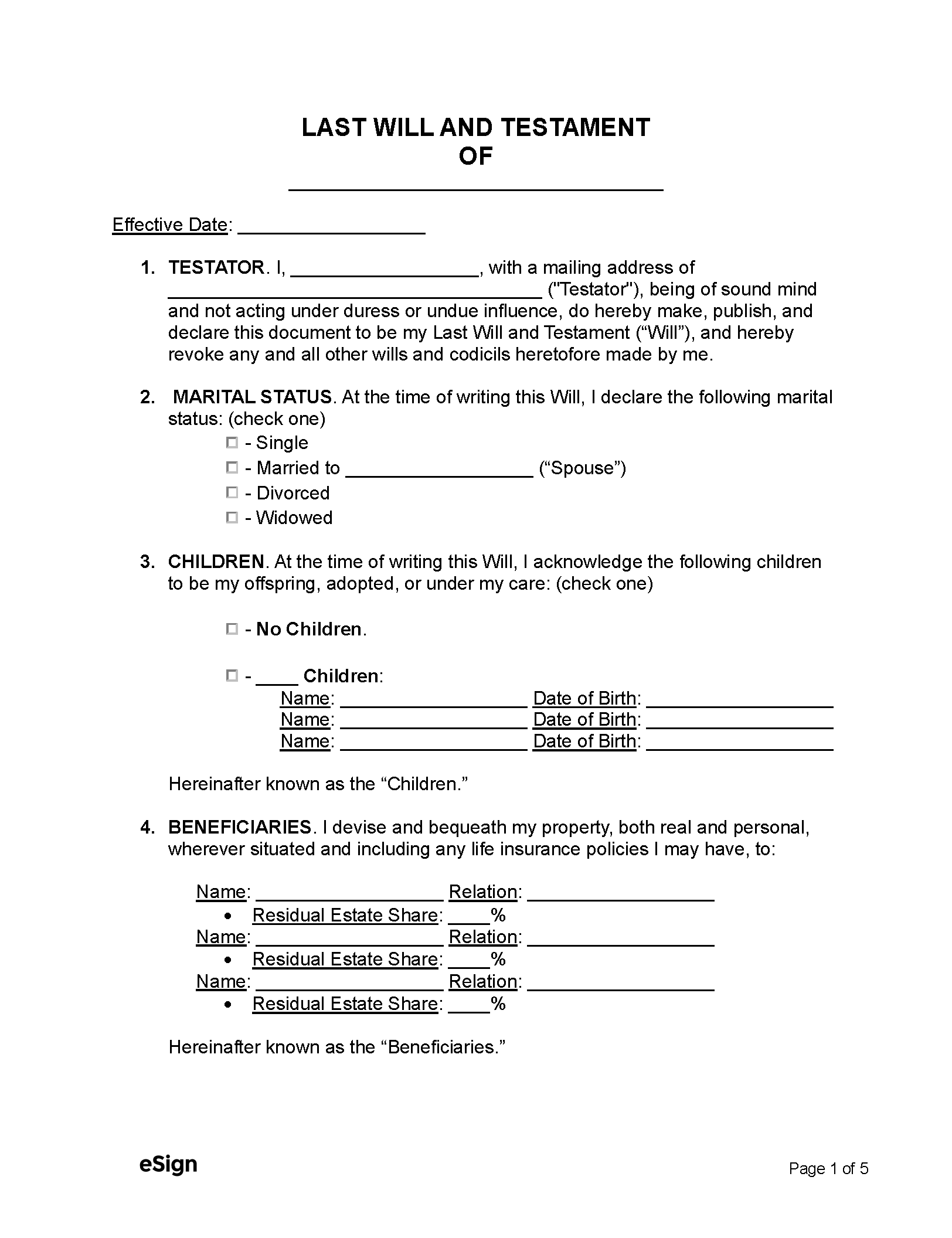A simple last will and testament is a legal document that directs who will receive the property of an individual (testator) after their death. When creating the will, it is required to name someone (personal representative) to carry out the testator’s wishes.
A basic will is common when a testator wants to give their entire estate to one person (such as a spouse) without special requests.
Requirements (6)
- Identifying the Testator
- Mention the Beneficiaries (and exclusions)
- Special Bequests
- Name a Personal Representative
- Predecease
- Signing Requirements
2. Mention the Beneficiaries (and exclusions)
4. Name a Personal Representative
A personal representative or executor is the person who will handle the estate through the probate process and help with its distribution. This is often the same person as the main beneficiary to ensure that any actions made on behalf of the estate are for the beneficiary’s sole benefit. If a 3rd party is requested as the personal representative, compensation may be included for their role in administrating the estate.
5. Predecease
Rules should be set up in the event a beneficiary predeceases the testator. These instructions inform the probate court where a beneficiary’s estate portion should go if they die before the testator. This clause provides convenience to the testator to not change or update their will in such an event.
6. Signing Requirements
It is required that a will is signed with at least two witnesses in 49 States (Louisiana requires two witnesses + notary public). Although, it is recommended to have signed with the two witnesses in the presence of a notary public to ensure its authenticity. Otherwise, a will can be questioned by family members. Especially if beneficiaries acted as the witnesses for the testator (not allowed in most states).

